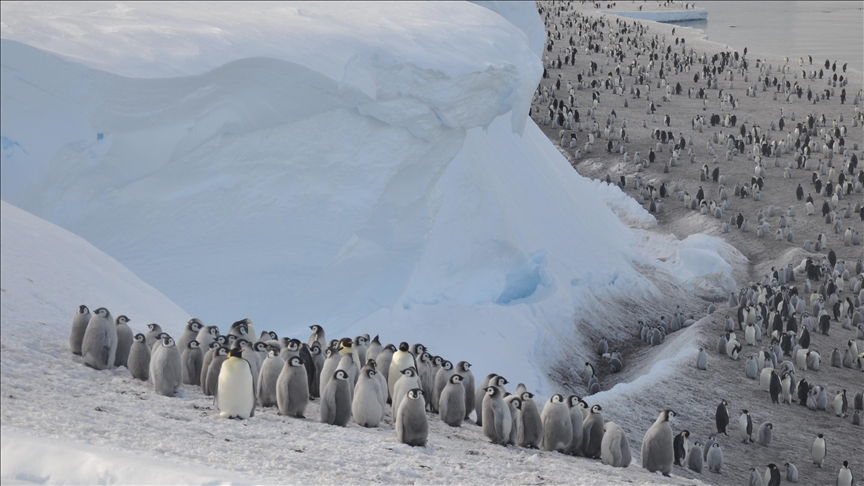Antarctica's emperor penguin population declining faster than thought: Report
If world fails to stabilize greenhouse gas emissions, relatively few emperor penguins will be left by turn of century, expert warns

LONDON
The emperor penguin population in Antarctica is declining "worse than the worst-case projections," according to a new study released on Tuesday.
The study, based on a new analysis of satellite imagery by the British Antarctic Survey (BAS), found the penguins' numbers declined 22% over a 15-year period in a key sector of Antarctica.
Peter Fretwell, who studies wildlife from space at BAS, expressed concern over the rapid decline, saying it is "worse than the worst-case projections we have for emperors this century."
The research indicates that the rapidly warming climate poses a "particular challenge" for emperor penguins because of their dependence on seasonal sea ice.
"Unfortunately, the recent trend has seen sea ice in many parts of the continent become patchy and unreliable, likely harming breeding success,” the study said.
The scientists found that the decline in the number of penguins has been dropping by an average of 1.6% per year — bringing numbers down 22% in 15 years.
Changing storm, snow, and rainfall patterns, along with increased competition for food resources from shifting wildlife ranges and more disturbance and predation from petrels, also exacerbate threats to the biggest penguin species.
"The fact that we're moving to a position faster than the computer models project means there must be other factors we need to understand in addition to loss of breeding habitat," said Phil Trathan, co-author and emeritus fellow at BAS.
He noted that the only way there will be a turnaround for the population is if the world stabilizes greenhouse gas emissions.
"If we don't, we'll probably have relatively few emperor penguins left by the turn of this century," he warned.
According to the World Wildlife Fund (WWF), emperors are the least common Antarctic penguins, with global population estimates of around 270,000 breeding pairs.
Experts now hope to determine whether this study, which focused on a specific geographic range, reflects the same story across Antarctica.
Anadolu Agency website contains only a portion of the news stories offered to subscribers in the AA News Broadcasting System (HAS), and in summarized form. Please contact us for subscription options.







